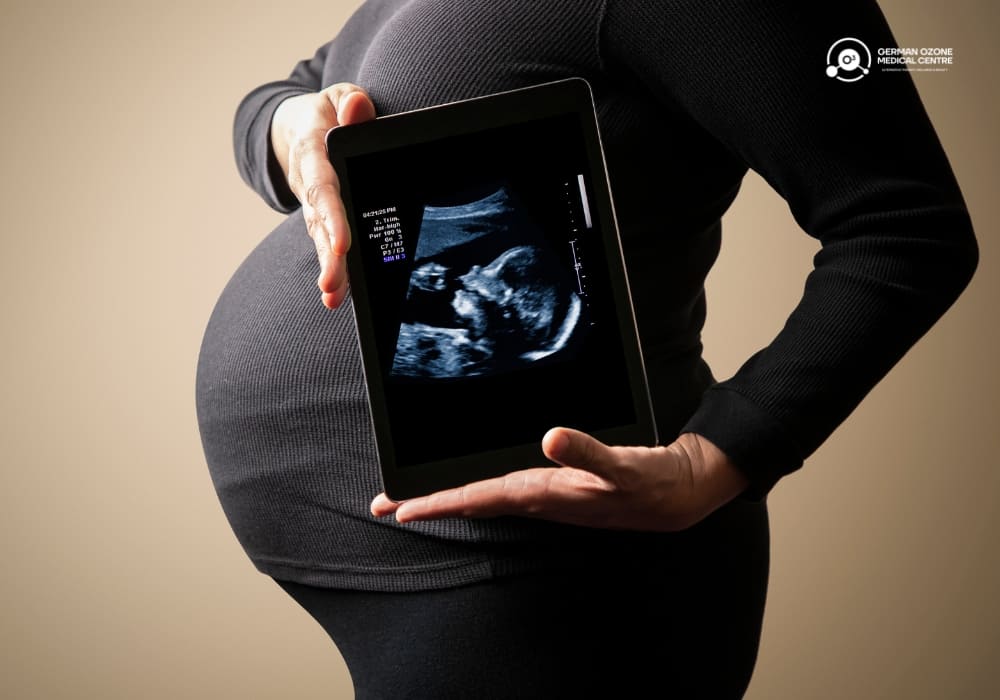In recent years, more couples struggling with infertility are turning to natural fertility treatments that support the body holistically. One such approach gaining attention is ozone therapy. But what exactly is it, and can it truly improve fertility outcomes for women and couples?
Let’s explore how ozone therapy for fertility works, its impact on reproductive health, and what current evidence and real-world experiences suggest.
What Is Ozone Therapy?
Ozone therapy involves the medical use of ozone gas (O3) to stimulate healing and oxygenation within the body. Ozone is a highly reactive form of oxygen that, when used correctly, promotes cell regeneration, boosts immune response, and improves blood circulation.
For fertility, ozone therapy is often administered via:
- Vaginal ozone insufflation for fertility
- Rectal insufflation
- Ozonated saline or autohemotherapy (ozone mixed with patient’s blood)
These methods allow ozone to work systemically and locally in the pelvic and reproductive regions, improving cellular function and enhancing tissue health—both critical for conception and pregnancy maintenance.
How Ozone Therapy Supports Fertility
- Enhancing Oxygen Delivery
Ozone therapy improves the oxygenation of tissues, including the uterus and ovaries. Increased oxygen supply promotes healthier eggs, better endometrial lining, and improved embryo implantation. For men, improved oxygen flow can also enhance sperm motility and morphology. - Reducing Oxidative Stress
Oxidative stress is a major contributor to infertility, especially in cases of poor egg or sperm quality. Ozone stimulates the production of antioxidant enzymes like glutathione, catalase, and superoxide dismutase—protecting cells from damage and enhancing reproductive potential. - Anti-inflammatory Effects
Conditions such as endometriosis, pelvic inflammatory disease (PID), adhesions, and chronic pelvic infectionsare often linked to inflammation, which can impair reproductive function. Endometriosis and ozone therapy have been increasingly explored together due to ozone’s anti-inflammatory benefits. - Detoxification and Immune Modulation
Environmental toxins, heavy metals, and autoimmune reactions can all affect fertility. Ozone therapy supports detox pathways and helps regulate immune responses. In patients with unexplained infertility, this can be a crucial piece of the puzzle. - Hormonal Balance
Through improved oxygen delivery and detoxification, ozone therapy can indirectly support hormonal regulation—helping to stabilize menstrual cycles and increase ovulatory consistency.
Related: What is Ozone Therapy & How Can It Benefit You?
Ozone Therapy and PCOS
Polycystic Ovary Syndrome (PCOS) is one of the leading causes of infertility worldwide. Women with PCOS often experience irregular periods, anovulation, and hormonal imbalances.
Clinical and anecdotal evidence suggests that ozone therapy can:
- Improve insulin sensitivity (a key factor in PCOS)
- Decrease systemic inflammation
- Support hormone balance and ovulation
This makes PCOS and ozone therapy a promising and gentle pairing for women who wish to avoid or complement conventional hormonal medications.
Ozone Therapy for Endometriosis and Infections
Endometriosis and ozone therapy have gained growing attention, especially for women seeking non-invasive alternatives to manage pain and fertility issues. Ozone therapy reduces inflammation and improves blood flow to the reproductive organs, helping to relieve pain and promote healing.
For chronic pelvic infections, ozone’s antimicrobial properties help eliminate bacteria, viruses, and fungi that may be hindering conception. Many clinics report success using vaginal ozone insufflation for fertility to restore vaginal flora and reduce infection-related infertility.
Real-World Applications: What Patients Are Saying
Many women undergoing ozone therapy for fertility-related issues report:
- Improved menstrual regularity
- Reduction in pelvic pain and bloating
- Better energy levels
- Successful pregnancies after multiple failed IVF cycles
One example from a European integrative clinic involved a woman with endometriosis and blocked fallopian tubes. After three months of systemic ozone therapy, her pain significantly reduced and subsequent imaging showed improved tubal function. She later conceived without assisted reproduction.
Related: What Is Ozone Bagging? Benefits, Uses, and How It Helps Wound Healing
Is Ozone Therapy Safe?
When administered by trained professionals, ozone therapy is safe and minimally invasive. Side effects are rare and usually mild, such as temporary bloating or fatigue. At German Ozone Medical Centre (GOMC) in Accra, we adhere to international safety standards and customise every treatment to individual patient needs.
Should You Consider Ozone Therapy for Fertility?
If you are dealing with PCOS, endometriosis, unexplained infertility, or recurrent pregnancy loss, ozone therapy may offer a supportive and complementary approach. It’s especially useful for those who have not found success with traditional treatments or are looking for holistic options.
Combining ozone therapy with other integrative therapies such as nutrition, acupuncture, or lifestyle medicine can enhance results and improve overall reproductive wellness.
Final Thoughts
Ozone therapy for fertility isn’t a standalone cure—but it offers a scientifically grounded, holistic option for improving reproductive health. By enhancing tissue oxygenation, reducing inflammation, and regulating immune function, ozone therapy supports the foundational processes your body needs for conception.
At German Ozone Medical Centre, we’re proud to offer safe and effective natural fertility treatments tailored to your unique needs. If you’re on a fertility journey and looking for an alternative approach, schedule a consultation with us today and experience the many ozone benefits for reproductive health–right here with trusted ozone therapy in Ghana.
Contact Information
- Phone Numbers: 055 024 2222 / 055 025 2222
- WhatsApp: 055 024 2222
- Address: Olusegun Obasanjo Wy, Dzorwulu, Accra. Opposite Allied Heights
